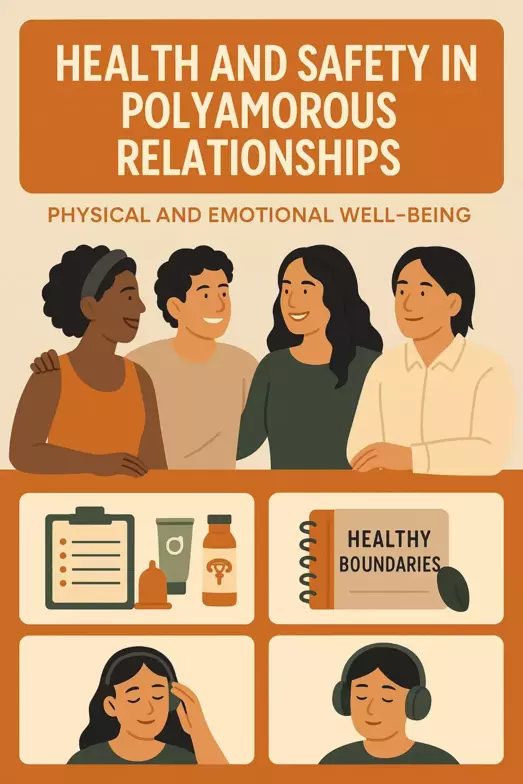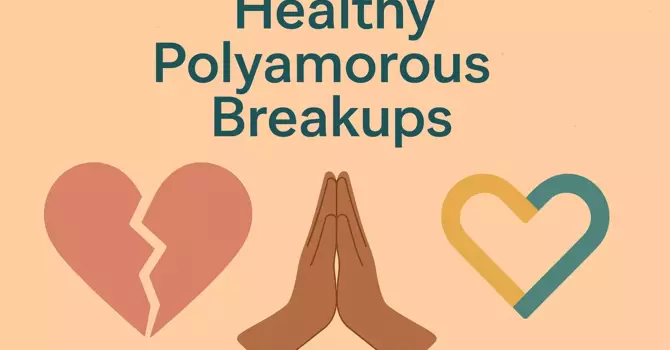
Where love is concerned, there is no one-size-fits-all. Polyamory—multiple-partner relationships by consent—is a love practice founded in honesty, communication, and connection. And, like any relationship structure, physical and emotional well-being are important, and safety needs to be deliberately prioritized.
If you are new to polyamory or a seasoned pro, the following are key considerations to enable you and your partners to thrive.
1. Communicate with Care and Clarity
Clear, kind communication is the cornerstone of healthy polyamorous relationships. That includes:
Naming boundaries and needs clearly and consistently
Being transparent about capacity, feelings, and expectations
Engaging in active listening—not merely hearing, but also comprehending
Tip: communication isn't merely a matter of coordinating schedules or revealing partners—it's a means of establishing trust, avoiding misunderstandings, and cultivating emotional safety.
2. Make Safer Sexual Practices a Priority
Polyamorous sexual health in networks takes work:
Get tested for STIs regularly and share results freely with partners
Use protection in a way that fits each relationship agreement
If your network is large or fluid, you may desire a written safer sex agreement
Be open. Safer sex conversations can be awkward, but they're a sign of caring—not suspicion.
3. Pay Attention to Emotional Safety and Jealousy
Jealousy isn't always bad—it's a warning signal. The question is what you do with it:
Name the emotion instead of suppressing it
Explore the root (Is it fear of loss? Insecurity? A need that’s unmet?)
Communicate it vulnerably, not reactively
Creating emotional safety means all partners feel seen, heard, and respected—whether they’re new or long-term.
4. Know Your Relationship Structures
Polyamory comes in many forms—kitchen table poly, parallel poly, hierarchical, relationship anarchy, and more. Understanding the structure you’re participating in can help:
Set realistic expectations
Avoid feelings of exclusion or neglect
Respect time and energy boundaries
No form is better than another—it's what works for the individuals involved. But clarity and alignment are crucial.
5. Prioritize Your Mental Health
Polyamory can expand your capacity for love and self-awareness—but it can also bring up intense emotions. Make space for:
Therapy with affirming, poly-aware providers
Self-care that supports regulation and resilience
Solo time to rest, reflect, and recharge
You are allowed to take up space and prioritize your wellness, even when your calendar is full of connection.
6. Don’t Forget the Basics
Physical well-being is part of relational well-being. Are you:
Getting enough sleep?
Nourishing your body?
Moving regularly in ways that feel good?
It’s hard to show up fully for others if you’re constantly running on empty. Taking care of your body is a love language, too.
7. Build Community and Support
Polyamorous people often face stigma, exclusion, or bewilderment. Being surrounded by affirming community can be life-giving:
Attend in-person or online poly support groups
Attend meetups or conferences
Follow poly educators and advocates
You're not alone—and you deserve support that respects your relationship values.
Final Thoughts
Polyamory isn't about having "more"—it's about having real, intentional relationships that are built on mutual respect, care, and consent. When you make physical and emotional well-being a priority, you make room for your relationships—not just to be, but to thrive.
Need Support Navigating Polyamorous Relationships?
At Inclusive Therapy Group, our affirming therapists specialize in working with clients in polyamorous, ENM, and kink relationships. Whether you're exploring your identity, navigating complex dynamics, or looking to strengthen communication and emotional safety, we're here to support you with compassion and understanding.
Book a consultation today to find a provider who aligns with your values and relationship style.
Have questions? Reach out to our care team—we’re always here to help.
Let’s build the tools for healthy, connected, and authentic relationships—together.
https://inclusivetherapygroup.com/blog/health-and-safety-in-polyamorous-relationships





